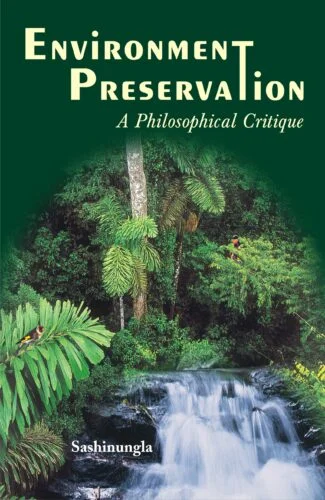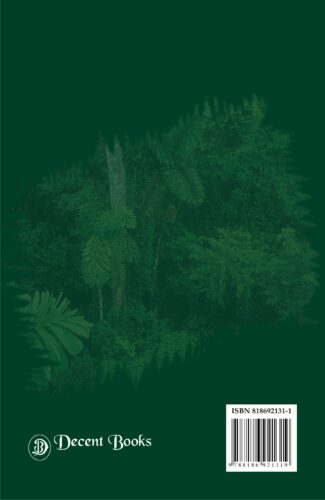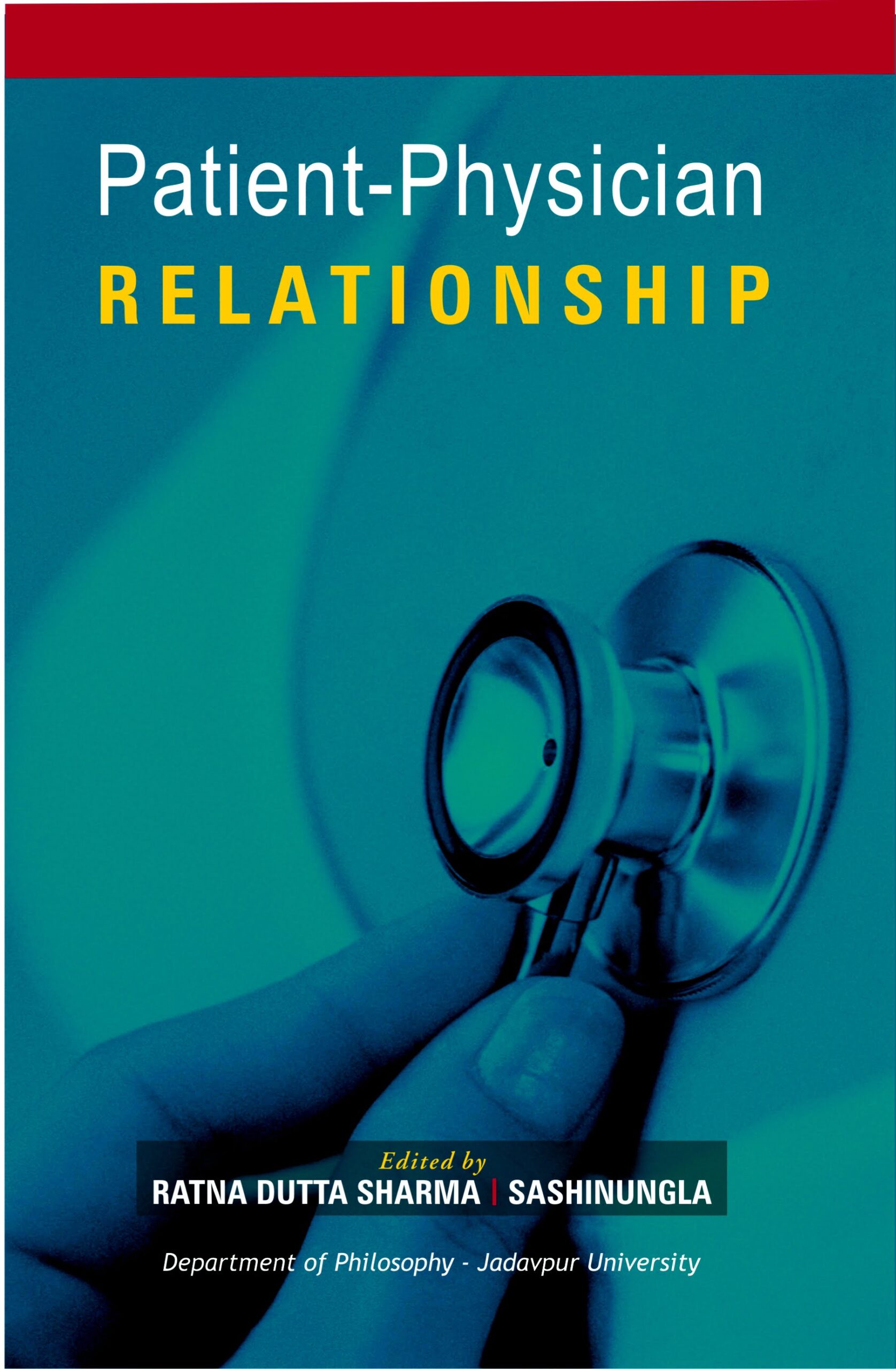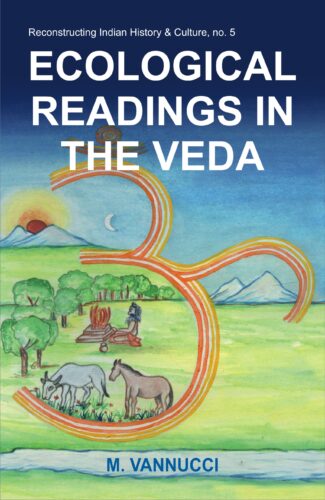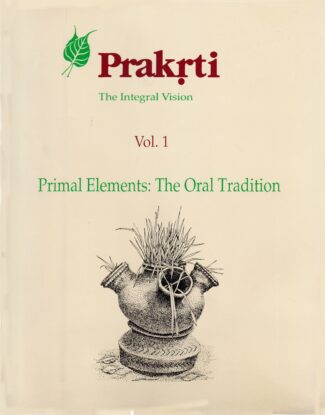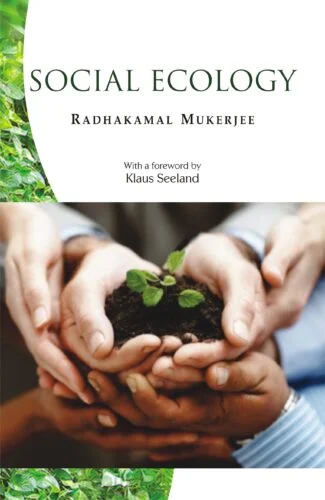

Environment Preserva...
Environment Preservation
A Philosophical Critique by: SashinunglaThe dominant ethical understanding and its preservation strategy is erroneous in itself to serve us with a more evaluative ethics to the present environmental crisis because its idea of Nature itself can also tend to be limited. The author explores the traditional tribal understanding of the close correlation between man and his environment for a new dialogue in philosophy.
₹280.00 Original price was: ₹280.00.₹252.00Current price is: ₹252.00.
ISBN: 9788186921319
Year Of Publication: 2005
Edition: 1st
Pages : viii, 152
Bibliographic Details : Bibliography; Index
Language : English
Binding : Hardcover
Publisher: Decent Books
Size: 23 cm.
Weight: 450
In an integrated and comprehensive framework, Environment Preservation: A Philosophical Critique takes a critical look at the increasing literatures and specific attempts at environmental preservation. The dominant ethical understanding and its preservation strategy, according to the author, is erroneous in itself to serve us with a more evaluative ethics to the present environmental crisis because its idea of Nature itself can also tend to be limited. The author turns away, therefore, from the sole western anthropocentric polemic and explores the traditional tribal understanding of the close correlation between man and his environment for a new dialogue in philosophy. The book will be imperative both to students at various undergraduate and post-graduate levels as well as to researchers. It will also interest anyone who wants to delve deeply into the philosophical issues of Nature preservation..
Preface
1. Introduction
2. Concept of Environment Preservation
3. Nature vs. Environment
4. Critique of Preservation Schemes
5. The Ao vision of Nature Preservation
6. Conclusion
Bibliography
Index
- Sale!Ecological Readings in the Veda by: Marta Vannucci
₹600.00Original price was: ₹600.00.₹540.00Current price is: ₹540.00.The Vedas are indisputably among the oldest of mankinds documents. Which Dr. Marta Vannucci rummages through to address a highly enigmatic question: How man evolved as Man: thinking, discriminating, thought-communicating? Or, yet more specifically, how did he come to identify cause-effect relationships of living-beings: both among themselves and with their environment? In looking for answers, she discovers profound biological, physiological, and ecological insights in Vedic writings which she projects here, with coherent analyses and prolific textual references. Dr Vannucci, who has studied Indian sacred texts for about twenty years, is perhaps the first ever biologist to explore the ecological validity of Vedas. With her critical Florentine mind and five-decade-long involvement in scientific methodologies, she interprets the complex Vedic verses in her thematic effort to decipher the ancient code with a bio-ecological key -spelling out, contextually, the Matter-Energy principles (embodied in Lord Agni) and Life-Hope principles (personified by Lord Savitr). Also setting out a comparative perspective on Vedic expressions of ecology and its contemporary worldview, the author suggests that the essential difference between the two stems not from the perception of reality, but from the manner of their theorizing. It is a painstakingly documented work, with a large-scale glossary of Sanskrit/ technical words and extensive bibliographic references. And also a foreword by a cultural scholar of Dr Kapila Vatsyayans eminence.
- Sale!Prakrti (Vol. 1) by: Kapila Vatsyayan
₹1,400.00Original price was: ₹1,400.00.₹1,260.00Current price is: ₹1,260.00.PRAKRTI : The Integral Vision explores the concept of the primal Elements (Sky, Air, Fire, Water, Earth, etc.) which has governed and determined the evolution of civilizations and cultures. This 5-volume collection is the outcome of a series of five successive but inter-locked seminars culminating into cross-cultural, multi-disciplinary understanding. The First Volume, Primal Elements: The Oral Tradition, focuses attention on the articulation of cohesive communities communicating with the Elements in continuous unceasing dialogue. To them the nature is not a matter of intellection; it is a question of life here and now. This is manifested in their primary myths and rituals which sacralize nature so that man can live as an integral part of the Universe. The Second Volume, Vedic, Buddhist and Jain Traditions, centres on the texts, probing deep into the Vedic rituals, Upanisadic philosophies and Jyotisa sastra. There is a prodigious consideration of the concept of maha-bhutas in Buddhism and Jainism. It also brings forth the many covergences and divergences of the view-points between and amongst these different streams of Indian thought. The Third Volume, The Agamic Tradition and the Arts, examines systematically the manifestation of the Elements in the Indian arts and their Agamic background. From the different vantage points of the architect, sculptor, painter, musician and dancer, the field is reopened here to discern the structure of the arts at its primal level. Experiences of the transformation of the gross to the subtle and the theories of aesthetics and cultural ecology emerge from such a captivating view-point. The Fourth Volume, The Nature of Matter offers a much-needed critical appraisal of modern scientific concepts with reference to traditional thoughts. It contains invaluable discussion on quantum theory and elementary particles, evolution of living matter, nature and function of matter, scientific philosophy and Buddhist thought, Sankhya theory of matter, ancient and medieval biology, mysticism and modern science, traditional cosmology, matter and medicine, matter and consciousness, etc. The dialogue created between the method of science and the method of speculation is invigorating. The Fifth Volume, Man in Nature, is a coming together of cultures and disciplines. Enchanting in their own way, the international community of scientists, philosophers, anthropologists, ecologists and artists, share in this volume the myths and cosmology of their respective societies and cultures. There emerges a most meaningful dialogue between those who live with the myths of primordial elements and those who have modified the tools of science to investigate the nature of matter. This 5-volume set, first of its kind, produced by the most distinguished specialists in the field, should enjoy a wide readership amongst philosophers of many different persuasions, scientists, theorists of art and culture, particularly ecologists and anthropologists seeking new insights into the phenomena of Nature.
- Sale!Cultural Dimension of Ecology by: Baidyanath Saraswati
₹600.00Original price was: ₹600.00.₹540.00Current price is: ₹540.00.Urbanization. Industrialization. Market Economy. Technocentric Lifestyles. Degenerated Consumerism. Air, Water and Land Pollutions. These are some of the tell-tale expressions, recurringly surfacing in the concerns about ecological disturbances across the continents. Today, however, as we are headed for an ecological disaster, there is not only a growing awareness against the cornucopian technocentrism, but also a far-stretched disillusionment with the one-way exploitative, economic development. And even the national planners are being questioned: Can the law of a nation supersede the Law of Nature? Should the rights of the people be allowed to be destructively manipulated by the rules of power? Must the wisdom-tradition of our ancestors be shelved to accomodate the flagrant hypocrisies of the Planning tradition? As a part of the Unesco Chair activities at the Indira Gandhi National Centre for the Arts, a Conference: 13-16 October 1995, New Delhi, involved some of the highly reputed scholars in a stimulating dialogue on the Cultural Dimension of Education and Ecology. Its presentations are now offered in two volumes: setting out independently the Cultural Dimension of (1) Education, and (2) Ecology. Focussing on the ecological systems in the mountains, forests and islands vis-a-vis the hitherto-adopted modes of aggressive development, the 15 articles here underscore the urgency of changing the modern lifestyles, of befriending Nature and, above all, of returning to wisdom-tradition. Also included here are case-studies highlighting the aspects of culture that are being lived in the day-to-day lives of people even today! This collection is invaluable to environmentalists, social activists, economic planners, policy-makers, and cultural scholars working for the revival of traditional wisdom.
- Sale!Social Ecology by: Radhakamal Mukerjee
₹1,000.00Original price was: ₹1,000.00.₹900.00Current price is: ₹900.00.This book of Radhakamal Mukerjee, with an introduction of Klaus Seeland, is an authoritative study on social ecology. Social ecology is different in scope from human ecology. Since there is whole gamut of confusion about the term social ecology and its relation with sociology, here is an attempt to detail the essential principles of social ecology and its scientific fruitfulness for sociology.
This volume is an endeavour to present the major ecological concepts and processes which may help in refashioning the framework of sociology. It is also an attempt to deal with a comparative social ecology on which rest the foundations of comparative economics and sociology. Social ecology studies the place, occupation and time relations of persons and groups in their processes of competition, co-operation, conflict, accommodation and succession. It is a vast and virgin field orienting social phenomena on the basis of the give-and-take between life, mind and region.
This book is so comprehensive that it should contribute to a scientific classification of socialecological concepts and to the development of a methodology according to which social economy may form the basis of a new functional and quantitative sociology. Therefore, it should be a referral book for sociology students, teachers and researchers. - Sale!Primitive Tribes of Orissa and their Development Strategies by: Nityananda Patnaik
₹750.00Original price was: ₹750.00.₹675.00Current price is: ₹675.00.Tribal people living in the remote areas of the territory forms an indispensable part of the Indian population. More than 250 different tribal groups inhabit in India, of which 62 tribal groups live in Orissa, each varying in culture, language, economic life and level of literacy. The thirteen tribal groups, namely Birhor, Bondo, Didayi, Dongria-Khond, Juangs, Kharias, Kutia Khond, Lanjia Saoras, Lodhas, Mankidias, Paudi Bhuinyas, Soura and Chuktia Bhunjia, having pre-agricultural level of technology and extremely low level of literacy have been recognized as Primitive Tribesû of Orissa. These tribal groups remain confined to their own small world and a probe into its history clearly shows that after a few generations the past turns into mythology. It was realized only after the Independence that to have a well-developed and prosperous nation, the needs and problems of the tribals were to be addressed and their welfare to be taken care thereof. The book presents an in-depth study of the various measures and provisions adopted, schemes introduced and plans implemented, since the Fifth Five-Year Plan, to redress the problems of the tribals; and apprises the readers about the on-going attempts in bringing them to the national mainstream through the 13 Micro Projects. Besides, the book presents an extensive detail of the ethnographic features of the entire Primitive Tribes with particular reference to their economic activities, social sanctions and varied problems faced by them. The realistic description of their pathetic life, deprived of all modern facilities, is highly touching and makes one wonder, do such people really exist in the 21st Century? The book will universally appeal to all readers and is highly recommended for the scholars of sociology and anthropology in particular.


